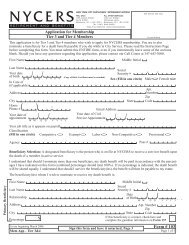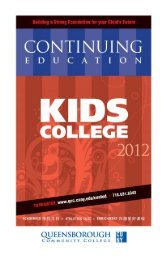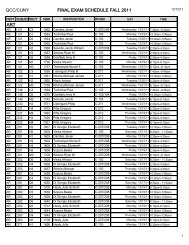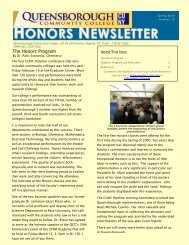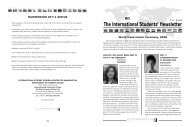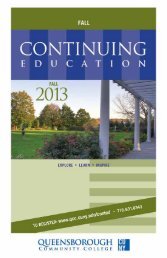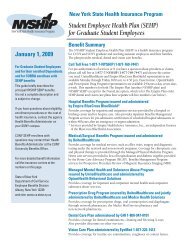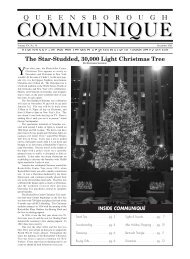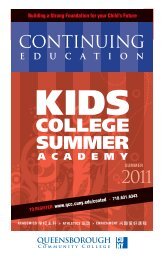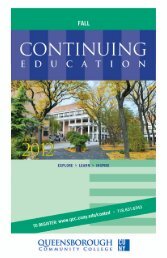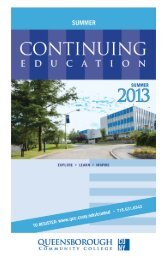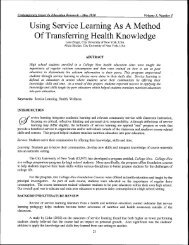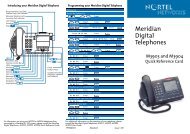Chemical Hygiene Plan - Queensborough Community College ...
Chemical Hygiene Plan - Queensborough Community College ...
Chemical Hygiene Plan - Queensborough Community College ...
Create successful ePaper yourself
Turn your PDF publications into a flip-book with our unique Google optimized e-Paper software.
Food and Drug Administration<br />
Food (exception of most meat and poultry - these are regulated by the USDA), drugs, biologics,<br />
cosmetics, medical devices, and electronic products that emit radiation being imported or offered<br />
for import into the United States are regulated by the Food and Drug Administration.<br />
16.8 Hypodermic Syringes and Needles<br />
All users of hypodermic syringes and needles must comply with New York City Department of<br />
Health and Mental <strong>Hygiene</strong> (DOHMH) regulations and are responsible for appropriate<br />
procurement, storage, and distribution.<br />
• All non-medical and non-veterinary use of syringes and needles (e.g., teaching, research)<br />
require a DOHMH Certificate of Need. Generally, individual academic departments at<br />
CUNY possess Certificates that cover all members within the respective department<br />
(please consult with your administrative manager or department chair).<br />
• The P.I. or supervisor of the laboratory or work area should assign an individual (i.e.,<br />
custodian) who is responsible for the storage, security, and maintaining records of<br />
purchases and distribution.<br />
• Individual users are responsible for securing hypodermic syringes and needles not in use<br />
in a locked drawer or cabinet, and maintaining a written log of use and distribution.<br />
• Follow the guidelines for disposal in one of the waste segregation and disposal tables.<br />
XVII. HUMAN PARTICIPANTS<br />
Each college’s Institutional Review Board (IRB) exists as a safeguard to promote ethical and<br />
responsible treatment of human subjects/participants in research. In accordance with CUNY<br />
policy, all research projects that use human subjects -- regardless of the source of funding -- must<br />
be reviewed and approved by the IRB before the investigator may commence with the study.<br />
Research investigators may not make the final determination of exemption from applicable<br />
Federal regulations or provisions of CUNY’s Human Research Protections Program Policies and<br />
Procedures. Only the IRB can designate a research project as “exempt.” The CUNY-wide IRB<br />
serves CUNY’s central investigators, the Research Foundation’s central investigators, and<br />
reviews multi-campus projects. In addition, this body hears final appeals of disapprovals.<br />
The Office of Research Conduct (ORC), located within the Office of Academic Affairs at the<br />
CUNY Central Office, reports to the Vice Chancellor for Research and works in concert with the<br />
President of the Research Foundation (RF) to oversee and carry out the CUNY Human Research<br />
Protection Program (HRPP). In effect, the ORC is responsible for the protection of the rights<br />
and welfare of all human subjects in research projects conducted at CUNY or by CUNY faculty,<br />
staff, students, and RF CUNY staff, and for the 21 Institutional Review Boards. These oversight<br />
responsibilities include: monitoring compliance of any ongoing research involving human<br />
subjects with federal, state and university regulations; monitoring University compliance with<br />
113



